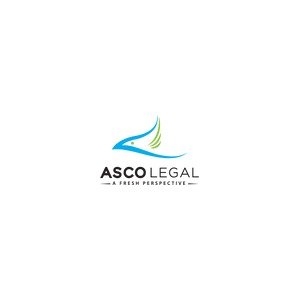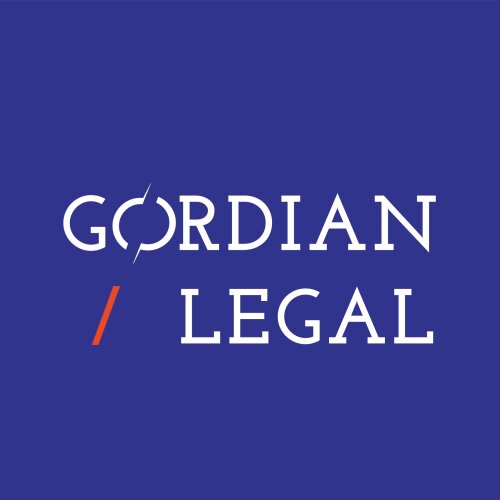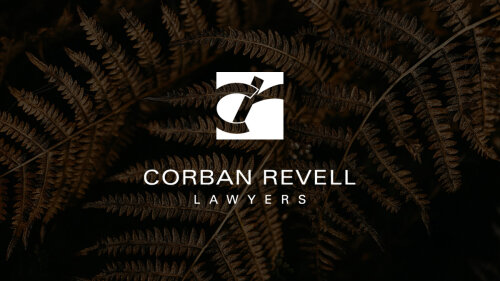Best Sanctions & Export Controls Lawyers in Auckland
Share your needs with us, get contacted by law firms.
Free. Takes 2 min.
List of the best lawyers in Auckland, New Zealand
About Sanctions & Export Controls Law in Auckland, New Zealand
Sanctions and export controls are critical areas of law that regulate how individuals and businesses in Auckland, New Zealand, interact with foreign entities and move goods, technology, and services across borders. These regulations are designed to ensure compliance with international obligations, protect national security, and support New Zealand’s foreign policy. Sanctions can impose restrictions on doing business with certain countries, entities, or individuals, while export controls manage the legal export of sensitive items, military goods, and dual-use technology. Failure to comply can result in severe penalties, including fines and criminal prosecution.
Why You May Need a Lawyer
Many individuals and businesses in Auckland may need legal assistance with sanctions and export controls, especially given the complex and evolving nature of these regulations. Common situations where legal help is essential include:
- Uncertainty about whether your products, software, or services require export licenses - Facing allegations of violating sanctions or export control laws - Navigating business deals involving sanctioned countries or individuals - Developing compliance programs to avoid breaches - Responding to government investigations or audits - Applying for exemptions or seeking guidance on licensing - Ensuring employee training aligns with current legal requirements - Managing international mergers, acquisitions, or joint ventures - Handling voluntary disclosures of compliance issues - Setting up robust due diligence procedures for international transactions
Local Laws Overview
In Auckland, and throughout New Zealand, sanctions and export controls are primarily governed by the United Nations Act 1946, which empowers the government to implement UN Security Council sanctions. Additional regulations are set under domestic law, such as the Customs and Excise Act 2018 and the Trade in Endangered Species Act 1989, among others. The Ministry of Foreign Affairs and Trade (MFAT) maintains an updated list of sanctioned countries and entities, and is responsible for administering export control licensing for strategic goods, arms, and dual-use items. Customs New Zealand enforces export and import controls at the border.
Key aspects of local law include:
- Mandatory licensing for certain exports, including military and dual-use goods - Prohibition of trade with sanctioned entities or countries identified by MFAT - Strict documentation and record-keeping requirements - Serious penalties, including prosecution, for non-compliance - Extra scrutiny for technology transfers, cryptography, and goods that could have dual civilian and military uses - Ongoing obligation to monitor regulatory changes and guidance from MFAT
Frequently Asked Questions
What is the difference between sanctions and export controls?
Sanctions are measures restricting dealings with specified countries, entities, or individuals, often for political or security reasons. Export controls regulate the export of particular goods, technology, or software, especially items that may contribute to military or weapons programs.
Who is responsible for complying with these laws in Auckland?
Any individual or entity based in Auckland, including companies and their employees, must comply with sanctions and export controls, regardless of the size of their business.
Do I need a licence to export commercial goods overseas?
Most commercial goods do not require a license. However, military items, dual-use goods, or technology with security implications may require government approval.
What is a dual-use item?
A dual-use item is a product, software, or technology that can be used for both civilian and military applications. Common examples include certain chemicals, electronics, and encryption software.
How do I know if a country is subject to sanctions?
Check the Ministry of Foreign Affairs and Trade's official list of UN and autonomous sanctions, which is updated regularly and details restrictions on countries and entities.
What are the consequences of breaching sanctions or export control laws?
Consequences can include substantial fines, imprisonment, loss of export privileges, reputational damage, and in some cases, asset forfeiture.
Can I apply for an exemption from a sanction?
In some cases, exemptions may be available for humanitarian or other approved purposes. Applications are reviewed by the relevant governmental authority.
How can I ensure my business complies with these regulations?
Develop and maintain a compliance program, keep up to date with regulatory changes, train staff, and conduct regular audits. Legal advice can help tailor these steps to your business needs.
Do New Zealand sanctions only apply to New Zealand citizens?
No. Sanctions and export controls apply to all individuals and companies operating in New Zealand, regardless of citizenship.
Are there reporting obligations if I discover a potential breach?
Yes. Prompt voluntary disclosure to authorities, like MFAT or Customs, is recommended and may mitigate penalties. Legal assistance is advisable in these situations.
Additional Resources
To learn more about sanctions and export controls in Auckland, consider reaching out to:
- Ministry of Foreign Affairs and Trade (MFAT) - responsible for sanctions enforcement and licensing - New Zealand Customs Service - handles enforcement at the border - New Zealand Police Financial Intelligence Unit - for suspicious transaction reports - ExportNZ and relevant trade associations - provide general guidance for exporters - New Zealand Law Society - offers referrals to qualified legal professionals specializing in this area of law
Next Steps
If you require legal assistance with sanctions and export controls in Auckland:
- Gather all relevant documentation regarding your export activities or dealings with foreign entities - Identify any deadlines for reporting, licensing, or compliance - Contact a law firm or lawyer experienced in sanctions and export controls law - Prepare a list of questions and concerns for your legal advisor - Consider engaging a compliance consultant if your business frequently deals with overseas partners - Stay informed by monitoring updates from MFAT and other regulatory agencies
Engaging a knowledgeable lawyer early can help you navigate the complexities of these laws, reduce your risk of non-compliance, and ensure your business activities remain on the right side of the law.
Lawzana helps you find the best lawyers and law firms in Auckland through a curated and pre-screened list of qualified legal professionals. Our platform offers rankings and detailed profiles of attorneys and law firms, allowing you to compare based on practice areas, including Sanctions & Export Controls, experience, and client feedback.
Each profile includes a description of the firm's areas of practice, client reviews, team members and partners, year of establishment, spoken languages, office locations, contact information, social media presence, and any published articles or resources. Most firms on our platform speak English and are experienced in both local and international legal matters.
Get a quote from top-rated law firms in Auckland, New Zealand — quickly, securely, and without unnecessary hassle.
Disclaimer:
The information provided on this page is for general informational purposes only and does not constitute legal advice. While we strive to ensure the accuracy and relevance of the content, legal information may change over time, and interpretations of the law can vary. You should always consult with a qualified legal professional for advice specific to your situation.
We disclaim all liability for actions taken or not taken based on the content of this page. If you believe any information is incorrect or outdated, please contact us, and we will review and update it where appropriate.















